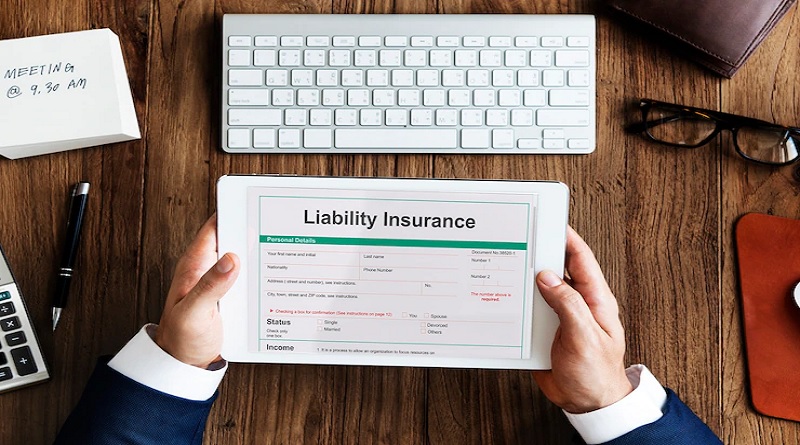HOW TO GET GENERAL LIABILITY INSURANCE?
There are many catastrophes that might severely hurt your bottom line. Your employee might, for instance, spill a can of white paint on some items. Or a client could suffer an injury after stumbling over a rug at your establishment. Or you can face legal action for reputational harm resulting from something you or a worker said.
A small firm is protected from issues of this nature by general liability insurance. It is a crucial sort of coverage for the top small business insurance.
What Is General Liability Insurance?
A company’s general liability insurance shields it from a range of potential claims, including those for bodily harm, property damage, copyright infringement, reputational damage, and damages to advertising.
- Bodily injury caused by a business is a common claim. If someone comes to your place of business and is injured, a general liability policy would cover their medical costs. A bodily injury claim could be something as simple as a fall by a customer at a store or office.
- Property damage is another common liability claim. Your business may be legally responsible if a person’s property is damaged while at your business. Property damage claims could also include damage to a client’s home or other property if you are visiting them on business.
- Copyright infringement claims come about if you are accused of using someone else’s work in your business ad or other business marketing without their permission.
- Reputational harm can happen, for example, if you’re being interviewed by a news outlet and you say something about another company that hurts their business.
- Advertising injury can happen if your business defames another person, business owner, or company.
Since these liability claims are frequent, you should keep your company covered with the appropriate insurance. For instance, a slip and fall claim typically costs $20,000 to settle. A reputational harm case might also cost you $50,000 in legal fees.
What Does General Liability Insurance Not Cover?
Although general liability insurance for businesses doesn’t cover everything, it does cover a lot.
It excludes coverage for business-related auto accidents, worker illnesses, and injuries, property damage, errors made by professionals, claims that exceed the policy limit, and unlawful conduct committed by you or your employees.
For these kinds of liability claims, you’ll need different types of business insurance, including:
- Employee injuries and illnesses. You need worker’s compensation insurance to provide coverage for employee injuries.
- Auto accidents. For auto accidents, while doing business, a commercial auto insurance policy financially protects you if you own the car. A hired or non-owned auto insurance offers protection if you use a personal car or rented car for work.
- Professional mistakes. An errors and omissions insurance (E&O) policy provides coverage if you make mistakes in the course of your work. An E&O policy is sometimes called professional liability insurance.
- Theft and damage to your business property. General liability insurance won’t cover your business equipment or property against theft or damage. You need a commercial property insurance policy to cover these types of problems.
Intentional acts, like tossing a computer out the window, are not covered by insurance. Additionally, general liability insurance won’t be of any assistance if you or your staff commit willful, illegal crimes or other wrongdoings.
How Much General Liability Insurance Coverage Do I Need?
Most small firms opt for general liability insurance coverage limits of $1 million per occurrence and $2 million altogether, according to Insureon. Under this kind of coverage, a single general liability insurance claim may be paid up to $1 million, with a $2 million cap on all claims made over the course of the policy year. The policy typically lasts for a year.
Is general liability insurance required by law?
Although it’s not required by law, failing to purchase business liability insurance exposes your company to a multitude of risks that could lead to financial ruin.
How Much Does General Liability Insurance Cost?
According to Insureon, the average monthly cost of general liability insurance is $42. It could be less than that, as 17% of small business customers of Insureon pay less than $25 monthly for their general liability policy.
The price of general liability insurance coverage varies depending on your industry, region, business size, and the quantity of coverage you require.
By selecting the insurance limits that most closely match your requirements, you may control the cost of general liability insurance. Combining general liability insurance with commercial property insurance is simple and affordable with a business owner’s policy (BOP). However, you can also purchase general liability insurance on your own.
How much you pay for general liability insurance depends on key factors such as:
- Your type of business. If your company is a high-risk business, you pay a higher cost for general liability insurance.
- The years of experience in your business.
- Size, location, and condition of your building.
- Policy details, such as deductibles and coverage limits.
- The insurance claims history for your business.
Who Needs General Liability Insurance?
Here are situations where you’d benefit from business liability insurance coverage:
- Your business is open to the public or clients or vendors.
- You advertise or create marketing materials for your business.
- You use social media personally or professionally.
- You use third-party locations for business activities.
- You need insurance coverage in order to be considered for work contracts.
- You have temporary employees.
What types of businesses benefit from general liability insurance?
The types of businesses that typically buy general liability insurance include:
- Small business owners
- Landscaping companies
- IT contractors
- Real estate agents
- Consultants
- Marketing firms
- Janitorial services
- Artisan contractors
The Risks of Not Having General Liability Insurance
Without general liability insurance, managing verdicts, settlements, and legal expenses may be very costly and may result in a business going bankrupt. A lawyer’s hourly rate could exceed $100. The Hartford claims that if the case goes to trial, court expenses could reach $75,000, and even if the case is dropped, you might still be required to pay a few thousand dollars.
If you don’t have general liability insurance, your business may go out of business. In addition, clients may stop doing business with you if you don’t have general liability insurance.
To prove your insurance coverage, you’ll need proof of insurance. A complete description of the coverage types and limits is included in the official documentation for an insurance policy.
How to Get the Best General Liability Insurance
Here’s a guide to getting the best general liability insurance.
Gather your information and documents
Before you start shopping for a general liability insurance policy, you’ll want to make sure you have all of the necessary information handy. Here’s what you’ll need:
- Basic contact information
- Information on what your business does
- Number of employees
- Details about your business location, including if you own or rent the building where your business is located
- Documentation to show how long you have owned your business
- Estimated business revenue for the upcoming year
Consider a business owners policy
Although it provides basic protection for your small business, a general liability insurance policy excludes coverage for issues like theft, vandalism, fire, extreme weather, and lost revenue. You will need to get additional coverage if you want to be covered for these kinds of problems.
Buying a business owner’s policy (BOP), which combines general liability insurance with commercial property insurance and business interruption insurance, is a smart way to accomplish this. Generally speaking, purchasing a BOP is less expensive than purchasing each of the three insurance separately.








